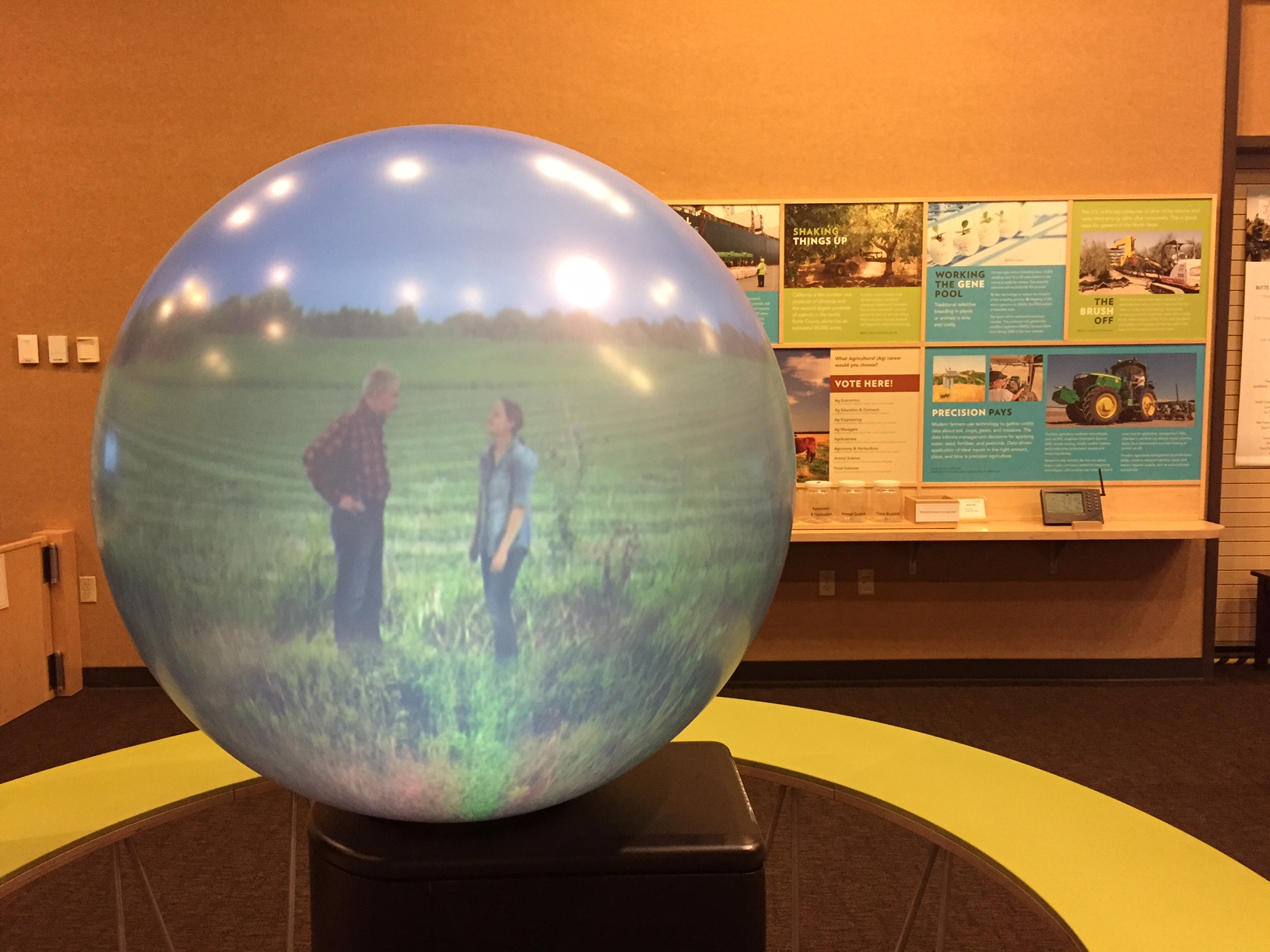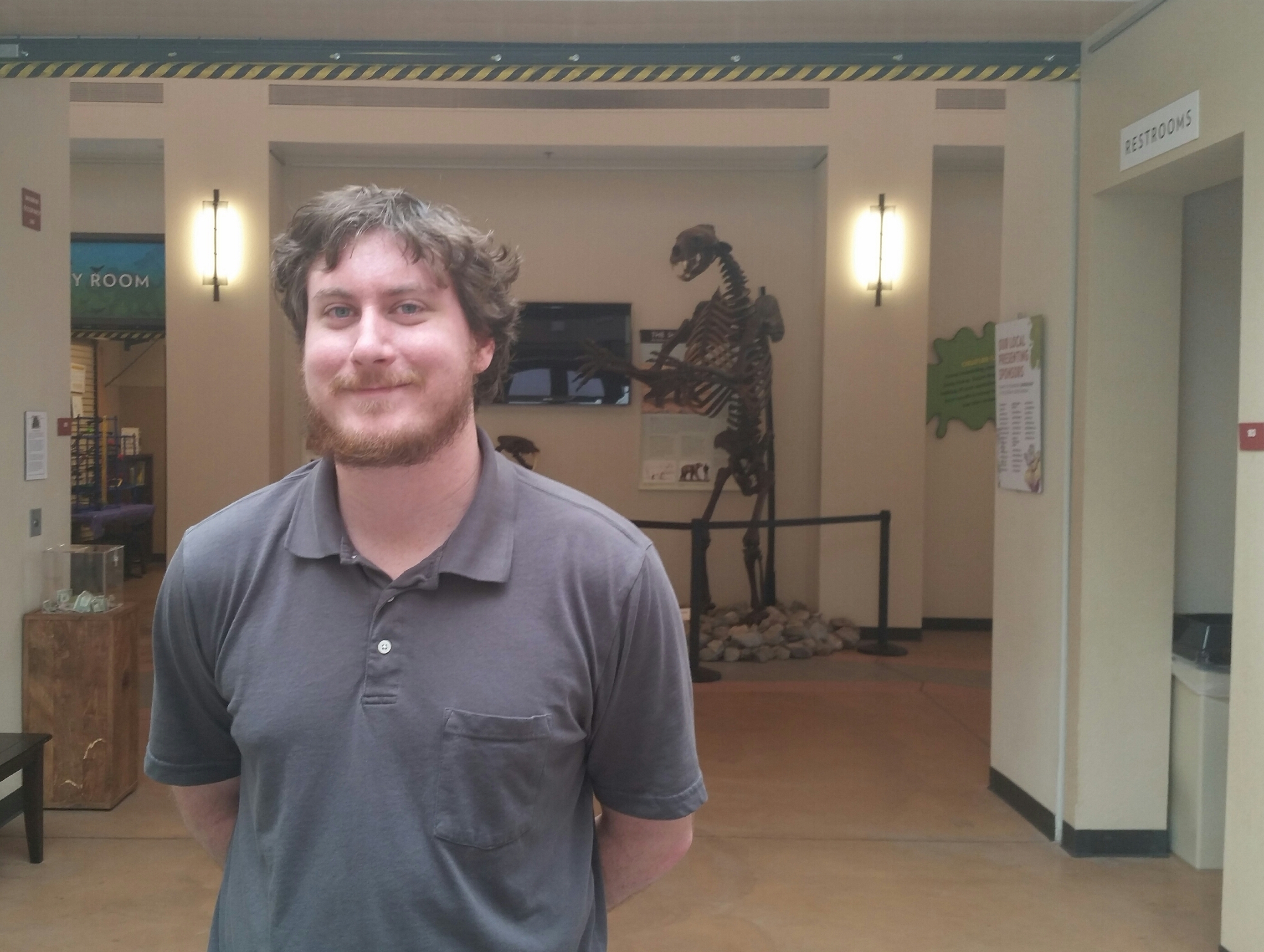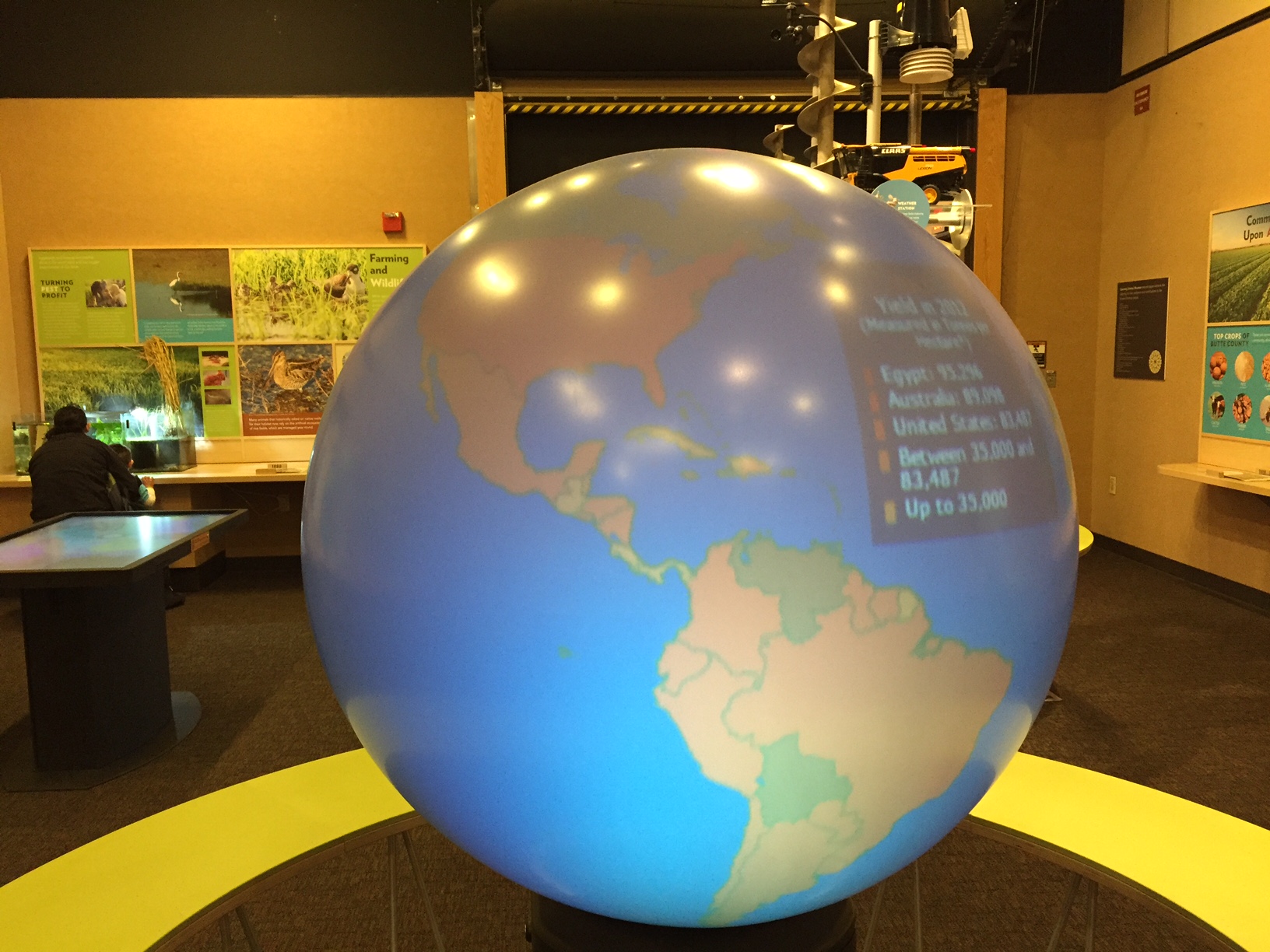The Magic Planet: Education in the Round

The GSM’s Magic Planet displays an agricultural landscape.
California State University, Chico’s Gateway Science Museum (GSM) is bringing agricultural education into the third dimension thanks to some new, New York Times-featured technology and a student intern’s ingenuity.
Senior electrical engineering major and GSM tech intern Scott Bladorn recently outfitted the GSM with a Magic Planet globe, an educational tool developed by Global Imagination. The Magic Planet is an image display projected onto a spherical lens, creating the effect of a rotating globe with which viewers can interact via a touch-screen pad.

While some exhibits across the world have used the Magic Planet globe to showcase Earth’s climates or Jupiter’s gaseous atmosphere, the GSM’s swirling sphere is currently spotlighting the influence of North State agriculture.
Over the past several months, Bladorn has been working to outfit the GSM’s Magic Planet with a custom display, titled “Modern Farming–Almonds, Rice, and Walnuts,” which tracks the global harvest production and yield of Butte County’s top three cash crops. The display is a part of the larger Modern Farming exhibit, which is a permanent, yet evolving fixture highlighting the North State’s agricultural practices.

While much of globe’s visual elements were created by Global Imagination, Bladorn said that he was faced with the challenge of adapting these elements to suit the GSM’s needs. In addition to programming the display, Bladorn was tasked with gathering data from the statistics division of the Food and Agriculture Organization (FAO) of the United Nations on the global production of almonds, rice, and walnuts. He then had to generate display maps for the data as well as create the user interface that allows viewers to interact with the globe via a touch screen.
“I can see us doing some cool things with the globe,” Bladorn said. He hopes to see the display used as an interactive tool in future lessons like the GSM’s Hour of Code, which aims to raise interest in coding among K–6 students.
“Being able to take this display and look at it from a technology perspective and then get kids interested in these new ideas and technologies—the more interest we raise, the more science-minded people we get.”
The GSM is open noon to 5 p.m. Wednesday through Sunday at 625 Esplanade in Chico. Museum admission is $6 for adults, $3 for children and students and free for museum members. For more information on the GSM, visit the museum’s website. For more information on Global Imagination’s Magic Planet, visit the product’s website.


